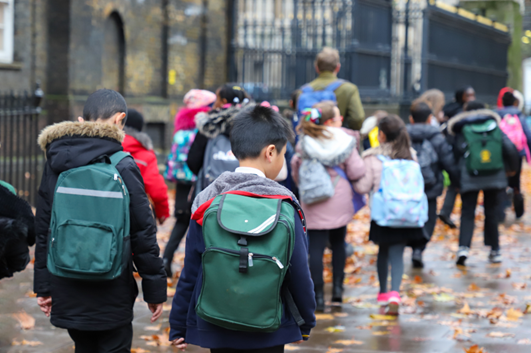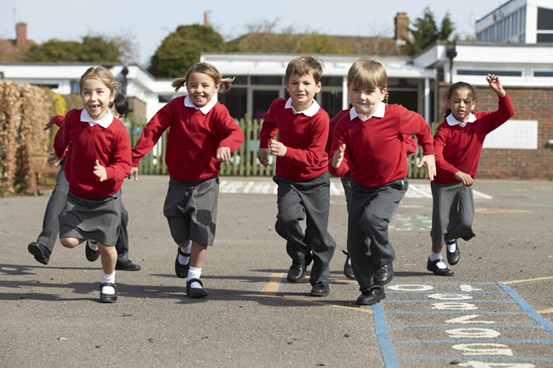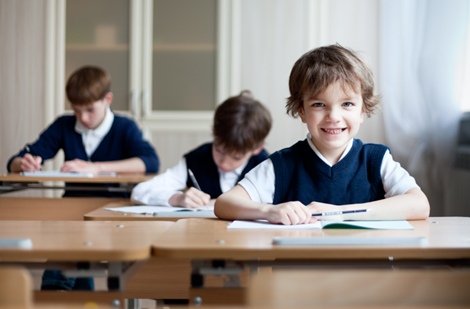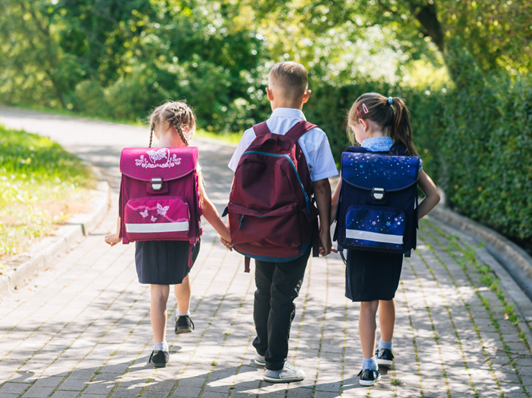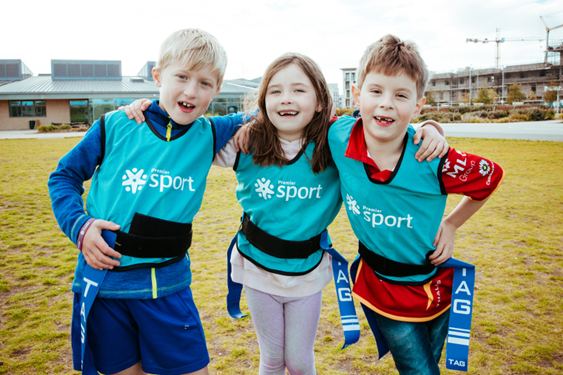10 Ways to Prepare Your Child for Starting Primary School
Our tips to help make the first day of school a success
Have you got a little one starting primary school this year? Depending on your child, they may see this as an exciting new adventure, but equally, they may be feeling a bit overwhelmed and nervous — so might you!
The transition to school is a key milestone in any child’s life, one that opens up a world of new friendships, fantastic learning opportunities and memorable experiences.
But it’s also a big, busy and brand new environment, with lots of new faces and new routines to adjust to. Not to mention having to wear school uniform every day.
So, you’ve met the teacher and got the aforementioned school uniform, PE kit, school shoes and school bag… what next?
As a parent or carer, there are plenty of ways you can help to support and prepare your child for starting school, and now that summer holidays are coming to an end, there’s no time like the present.
We’ve put together some top tips to help ensure that your child is ready for school and approaches their first day with confidence and excitement!
Prepare your child for independence
This is a really key point. Although your child will have the help and support of teachers and other adults, they will largely be expected to take care of themselves, so being able to do things independently will instantly boost your child’s confidence.
Dressing
Make sure your child is confident in dressing themselves. Practice putting on their school uniform and doing up coats and shoes — after all, they won’t want to miss a minute of playtime! A simple way to help your child is to go for elasticated waistbands and velcro fastenings where possible.
Eating
Before they start school, make sure you eat together as a family as regularly as you can, so that you can role-model using cutlery and good table manners.
Self care
Encourage your child to use the toilet independently, make sure they know how to properly clean themselves and wash their hands. It’s not uncommon in reception class for accidents to happen, so don’t worry if it does. Make sure your child has spare clothes and underwear at school and you’re all set.
Prepare your child for learning
Schools don’t expect new starters to be able to read or write yet, but having some basic familiarity with numeracy and literacy can help put them on course to progress well in their first year.
Numbers
Being able to count provides a great foundation for starting school. Encourage familiarity with numbers through songs and games. Why not go for a walk through your local neighbourhood and see if your little one can point out house numbers? How many can they get right?
Reading and writing
Prepare your child for learning to read by encouraging a love of stories. Sit down and enjoy books together as much as you can and discuss what’s happening in the story.
Being able to recognise letters and their own name is also going to be really useful for your child, so they know where their peg is and so they can read name labels in their clothes.
Listening
Many children these days attend nursery or pre-school before school so they will be familiar with grown ups giving simple instructions, including when to listen — during story time or similar.
Primary school will build on this and expect children to be able to sit still and concentrate for longer periods of time. Play simple listening games such as ‘Simon Says’ or even sit with your little one and get stuck into a Lego kit for 15 minutes to help teach them greater listening and concentration skills.
Get social with other children
Your child will be spending a lot of time with their peers in a very social environment, so boosting their social skills and emotional development before they start school will be of great benefit.
Try to connect with other local parents and set up some fun play dates during the school holiday so your child has a few familiar faces to play with on the first day. Making friends will no doubt be of huge importance to your little one, so playing with peers before school starts will help to get them excited about this big transition.
It’s also a good idea to get your child ready for turn-taking and sharing. No matter what size the class is, each child will have to get used to sharing with other children both in and out of the classroom.
Talk about school with a smile!
As their most trusted grown-up, the way you talk about school will have a big impression on your little one. Reinforce that school is fun, discuss what might happen during the school day, how they will make friends and explain that they will have lots of different lessons.
Talking about school is a great way of preparing them for this new part of their life, building their understanding of what goes on at school and helping to alleviate any fears.
Practice the school routine
Your child has probably had a visit or settling in session at school, so should be familiar with the school surroundings. It can be helpful to practice the school run a week or so before school starts to remind your child what will be happening on their first day.
If your child is anxious, why not devise a special goodbye ritual that you can do each day to give your child a feeling of extra security. It could be a few simple words that are special to you, an extra special hug, or even a small drawing of a heart for them to carry in their pocket.
Get involved in activities
It’s likely that to start with, your child will be very tired from the physical and mental stimulation of school. The first term will see them develop new skills, make friends and start their learning journey, so it’s advisable to let your child have plenty of downtime and keep weekends quiet.
However, once the first term is out of the way and your little one has settled into school life, why not explore if there are any extracurricular activities that your child could get involved with?
Taking part in an after-school club can help encourage children to be more active, as well as being a great way to let off steam after school, feel calmer, learn new skills and develop an interest in sports.
In fact, being involved in physical activity is all part of developing healthy habits.
We run a variety of extracurricular clubs for all interests. Our highly trained activity professionals keep children engaged with fun, focused sessions for all levels. You can find out if your school offers extracurricular clubs through our school activity finding tool.
We hope these tips have been helpful and you and your child feel ready to take on this exciting new challenge!


